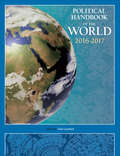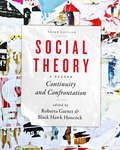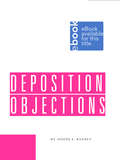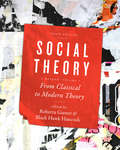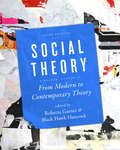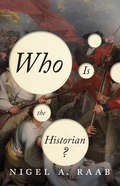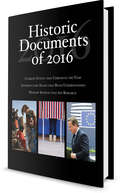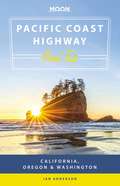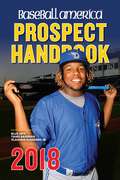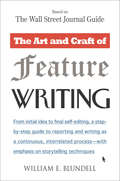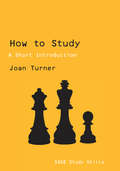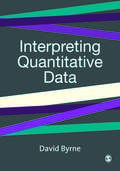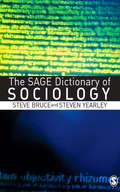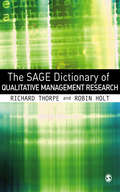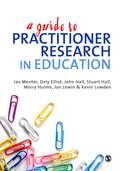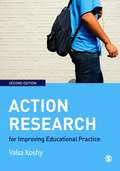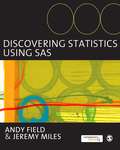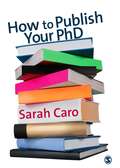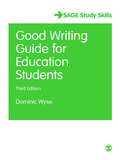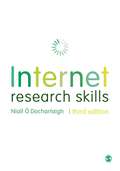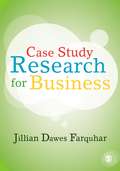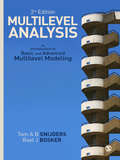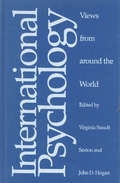- Table View
- List View
Political Handbook of the World 2016-2017
by Professor Tom LansfordPublished since 1928, the Political Handbook of the World provides timely, thorough, and accurate political information with more in-depth coverage of current political controversies and political parties than any other reference guide. The updated 2016–2017 Edition continues this legacy as the most authoritative source for finding complete facts and analysis on each country’s governmental and political makeup. Political science and international relations scholars have revised this edition, and made understanding complex foreign affairs andpolitical situations easy and accessible. With more than 200 entries on countries and territories throughout the world, housed in one place, these volumes are renowned for their extensive coverage of all major and minor political parties and groups in each political system. They also provide names of key ambassadors and international memberships of each country, plus detailed profiles of more than 30 intergovernmental organizations and United Nations agencies. This comprehensive update will include coverage of current events, issues, crises, and controversies from the course of the last two years, including: The closely-watched U.S. presidential election The effect of the Brexit referendum and installment of a new British prime minister The extensive investigation and subsequent impeachment of Brazil’s president The far-reaching impact of the “Panama Papers” scandal Changes in U.S.–Cuba diplomatic relations and the reopening of their embassies The unconstitutional declaration of Gambia as an Islamic State Sentiments about the migrant and refugee crisis across Europe and the influence on policy Also, the new “For Further Reference” feature included for every country entry directs readers to additional resources to continue their research.
Social Theory: A Reader, Third Edition
by Black Hawk Hancock Roberta GarnerThe third edition of this popular reader reflects considerable changes. With over seventy readings representing a wide diversity of theorists, it offers a breadth of coverage not available in other collections. The framework for understanding theory as a set of conversations over time is maintained and deepened, with a focus on key transitional theorists who helped pave the way from classical to contemporary theory. New contextual and biographical materials surround the primary readings, and each chapter includes a study guide with key terms, discussion questions, and innovative classroom exercises. The result is a fresh and expansive take on social theory that foregrounds a plurality of perspectives and defines contemporary trends in the field, while being both an accessible and manageable teaching tool.
Deposition Objections
by Joseph A. Ranney<p>This handy softcover guide provides the grounds and language for: attorney-client privilege, attorney work-product privilege, proprietary and confidential information, witness self-incrimination, family communications privileges, privileges for communications with professionals, privacy privilege, legal process privilege, over-broad and burdensome questions, vagueness, ambiguity, repetition, lack of foundation, legal conclusions, and more. <BR>Verbal and non-verbal coaching of the witness <br>Colloquies and stipulations among counsel <br>Instructing the witness not to answer <br>Disruptive or inappropriate objections <br>Production of privileged or confidential documents <br>Perhaps because depositions are as close to a trial as many cases will get, deposition disputes have grown more heated and difficult to resolve. <P>Here is a portable and affordable volume that provides practical guidance for resolving many of the more contentious disputes.
Social Theory, Volume I: From Classical to Modern Theory, Third Edition
by Black Hawk Hancock Roberta GarnerThe third edition of this popular reader reflects considerable changes. The framework for understanding theory as a set of conversations over time is maintained and deepened, pairing classical with contemporary readings to illustrate the ways in which theory continues to be reinterpreted over time. Volume I has been completely reorganized, with new contextual and biographical materials surrounding the primary readings, and end-of-chapter study guides that include key terms, discussion questions, and innovative classroom exercises. The result is a fresh and expansive take on social theory that foregrounds a plurality of perspectives and reflects contemporary trends in the field, while being an accessible and manageable teaching tool.
Social Theory, Volume II: From Modern to Contemporary Theory, Third Edition
by Black Hawk Hancock Roberta GarnerThe third edition of this popular reader reflects considerable changes. The framework for understanding theory as a set of conversations over time is maintained and deepened, but Volume II now begins with a focus on key transitional theorists who helped reconceive of classical theory in new ways. Extending from the classical tradition, chapters on race, gender, culture, media and globalization show how contemporary theory builds on the past even as it moves in new directions. New contextual and biographical materials surround the primary readings, and each chapter includes a study guide with key terms, discussion questions, and innovative classroom exercises. The result is a fresh and expansive take on social theory that foregrounds a plurality of perspectives and reflects contemporary trends in the field, while being an accessible and manageable teaching tool.
Who is the Historian?
by Nigel A. RaabWho is the historian? What do historians do? Where do their explorations take them? What is the impact of the digital age on historical research? In an affable style, Nigel A. Raab answers these questions for those intrigued by the past. Each chapter describes a specific aspect of "doing history," beginning in the physical spaces of archives and libraries around the globe. Readers are then introduced to the sources—texts, oral interviews, films, and objects—which historians interpret. Raab points out that historians do not work alone with their materials; rather, archivists, librarians, and others play a crucial role in what he calls the web of the historian's work. Readers will also learn about the skill set imparted to those pursuing a historical education. In the final chapter, Raab brings all these themes together to demonstrate the value of the historian in the contemporary world.
Historic Documents of 2016
by Heather KerriganPublished annually since 1972, the Historic Documents series has made primary source research easy by presenting excerpts from documents on the important events of each year for the United States and the World. Each volume pairs 60 to 70 original background narratives with well over 100 documents to chronicle the major events of the year, from official reports and surveys to speeches from leaders and opinion makers, to court cases, legislation, testimony, and much more. Historic Documents is renowned for the well-written and informative background, history, and context it provides for each document. Organized chronologically, each volume covers the same wide range of topics: business, the economy and labor; energy, environment, science, technology, and transportation; government and politics; health and social services; international affairs; national security and terrorism; and rights and justice. Each volume begins with an insightful essay that sets the year’s events in context, and each document or group of documents is preceded by a comprehensive introduction that provides background information on the event. Full-source citations are provided. Readers have easy access to material through a detailed, thematic table of contents, and each event includes references to related coverage and documents from the last ten editions of the series.
Coffee Lids: Peel, Pinch, Pucker, Puncture
by Louise Harpman Scott Specht Alex KalmanIf you're one of the 200 million Americans who drink coffee every day, you may have marveled at the ubiquitous plastic coffee cup lid, with its clever combination of indentations, protrusions, tabs, and score lines that can be pinched, pulled, pushed, punctured, and tucked to create an opening to sip from while also keeping a piping-hot liquid in its place. Louise Harpman and Scott Specht have collected these familiar triumphs of industrial design, in their many variations, for decades, creating what Smithsonian magazine calls the world's largest collection of coffee cup lids. In addition to oddly compelling close-up photographs, Harpman and Specht include lively field-guides to their classification system and patent drawings for many of the most unique designs. This beautifully designed book will appeal to designers, coffee drinkers, and anyone who delights in the small bits of humble genius that surround us every day. You'll never look at your to-go coffee cup the same way again.
Moon Pacific Coast Highway Road Trip: California, Oregon & Washington (Travel Guide)
by Ian AndersonHit the Road with Moon Travel Guides!1,700 miles of vibrant cities, coastal towns, and glittering ocean views: Embark on your epic PCH journey with Moon Pacific Coast Highway Road Trip. Inside you'll find:Maps and Driving Tools: 48 easy-to-use maps keep you oriented on and off the highway, along with site-to-site mileage, driving times, detailed directions for the entire route, and full-color photos throughoutEat, Sleep, Stop and Explore: Coast by fields of golden California poppies or stop at a seaside grill in Santa Barbara for the best chicharrón and fish tacos you've ever tasted. Marvel at the mystical evergreen giants of the Pacific Northwest, or dance down rainbow-colored streets in San Francisco's Castro district. You'll know exactly what you'll want to do at each stop with lists of the best hikes, views, restaurants, and moreItineraries for Every Traveler: Drive the entire two-week route or follow suggestions for spending time in Seattle, Portland, San Francisco, Los Angeles, and San DiegoLocal Expertise: Born-and-bred Californian Ian Anderson shares his love of the open road with youPlanning Your Trip: Know when and where to get gas, how to avoid traffic, tips for driving in different road and weather conditions, and suggestions for LGBTQ travelers, seniors, and road trippers with kidsWith Moon Pacific Coast Highway Road Trip's practical tips, detailed itineraries, and insider's view, you're ready to fill up the tank and hit the road.Looking to explore more of America on wheels? Try Moon California Road Trip or Moon Pacific Northwest Road Trip! Doing more than driving through? Check out Moon California, Moon Oregon, or Moon Washington.
Baseball America 2018 Prospect Handbook Digital Edition: Rankings and Reports of the Best Young Talent in Baseball
by Editors of Baseball AmericaA Simon & Schuster eBook. Simon & Schuster has a great book for every reader.
The Art and Craft of Feature Writing: Based on The Wall Street Journal Guide (Plume Ser.)
by William E. BlundellStorytelling—how to catch and hold a reader’s interest through artful narration of factual material William E. Blundell, one of the best writers on one of America's best-written papers—The Wall Street Journal—has put his famous Journal Feature-Writing Seminars into this step-by-step guide for turning out great articles. Filled with expert instruction on a complex art, it provides beginners with a systematic approach to feature writing and deftly teaches old pros some new tricks about: · How and where to get ideas · What readers like and don’t like · Adding energy and interest to tired topics · Getting from first ideas to finish article · The rules of organization · How—and whom—to quote and paraphrase · Wordcraft, leads, and narrative flow · Self-editing and notes on style … plus many sample feature articles.
How to Study: A Short Introduction (SAGE Study Skills Series)
by Joan TurnerAny student can improve their learning in higher education if they want to, and the aim of this guide is to help you along this route, not by claiming there is only one right way to do things but by building awareness of different approaches, attitudes, and strategies. Key to this is the notion of active learning which is highlighted throughout the book with the acronym ASCERTAIN whose individual letters signal a range of different strategies and attitudes relevant in different contexts. Throughout, there is an awareness that among the different cultures students participate in, academic culture has its own set of values which academic staff tend to take for granted, but which students may need to have a greater awareness of, and build into your thinking and working. SAGE Study Skills are essential study guides for students of all levels. From how to write great essays and succeeding at university, to writing your undergraduate dissertation and doing postgraduate research, SAGE Study Skills help you get the best from your time at university. Visit the SAGE Study Skills website for tips, quizzes and videos on study success!
Interpreting Quantitative Data
by David ByrneHow do quantitative methods help us to acquire knowledge of the real world? What are the `do's' and `don'ts' of effective quantitative research? This refreshing and accessible book provides students with a novel and useful resource for doing quantitative research. It offers students a guide on how to: interpret the complex reality of the social world; achieve effective measurement; understand the use of official statistics; use social surveys; understand probability and quantitative reasoning; interpret measurements; apply linear modelling; understand simulation and neural nets; and integrate quantitative and qualitative modelling in the research process. Jargon-free and written with the needs of students in mind, the book will be required reading for students interested in using quantitative research methods.
The SAGE Dictionary of Sociology
by Steve Bruce Steven Yearley"Undoubtedly the most accessible, readable and downright interesting - even amusing - dictionary of its type. In being all of those things - and more - the dictionary does not sacrifice on quality. There are many well-chosen entries and they are quite informative. A useful addition to any scholar's library while at the same time being an excellent resource for both graduate and undergraduate students" - George Ritzer, University of Maryland "This is a delightful and comprehensive dictionary. The authors write in an engaging and lively style that brings alive the ideas of sociology not only for existing practitioners, but also for a whole new generation of students" - Tim May, University of Salford With over 1000 entries on key concepts and theorists, The SAGE Dictionary of Sociology provides full coverage of the field, clarifying the technical use of apparently common words, explaining the fundamental concepts and introducing new and unfamiliar terms. This book provides: authoritative, reliable definitions accessible 'digests' of key arguments contemporary, appealing illustrations of points readability. This is not just another dry guide to the discipline. Engagingly written with its audience firmly in mind, it will be the definitive and chosen companion to established textbooks and teaching materials in sociology.
The SAGE Dictionary of Qualitative Management Research
by Robin Holt Richard Thorpe'This comprehensive work extends general ideas, concepts, and techniques of qualitative research into the realm of management research...This is a crucial reference tool for anyone conducting research in this field of study' - CHOICE With over 100 entries on key concepts and theorists, the Dictionary of Qualitative Management Research provides full coverage of the field, explaining fundamental concepts and introducing new and unfamiliar terms. This book provides: - Definitions - Examples in the field of management studies - Criticisms and possible future directions Engagingly written by specialists in each area, this dictionary will be the definitive and essential companion to established textbooks and teaching materials in qualitative management research.
A Guide to Practitioner Research in Education
by Ian Menter Dely Elliot Moira Hulme Jon Lewin Kevin LowdenDrawing on short texts that were produced by the former Scottish Council for Research in Education (SCRE), Menter et al. (education, U. of Glasgow, UK), some whom have worked in the SCRE, introduce education students and experienced teachers to practitioner research. They explain what it is and what it means for teachers, lecturers, and other education professionals; why to engage in it, such as for initial teacher education, school improvement, or policy development; and its elements: the research question, values and ethics, secondary data, the literature review, questionnaires, interviewing, focus groups, observation, and other methods like using photos, diaries, and drawings. They end with explanation of quantitative and qualitative data analysis and sharing research. Annotation ©2012 Book News, Inc. , Portland, OR (booknews. com)
Action Research for Improving Educational Practice: A Step-by-Step Guide
by Valsa KoshyWhich topics are right for Action Research in an education context? How do you go about planning a project, collecting and analysing your data? What's the best way to present your research findings to parents, colleagues or funding bodies? Whether you are a busy teacher doing research in your classroom, an undergraduate starting your research project, or a Masters level or education doctorate student writing up your dissertation, this step-by-step guide takes you through every stage involved in carrying out Action Research. In this brand new edition, you will find additional guidance on: - philosophical underpinnings of Action Research - the challenges of being an insider researcher - searching and analysing literature from the internet - children's participation and children's rights in action research projects in educational settings - validity and authenticity in action research - a new chapter on writing for publication - an action research planning sheet. This book draws on Valsa Koshy's extensive experience of supervising researchers at all levels, and includes examples of Action Research carried out by practitioners across a range of topics and age groups. Case studies include UK and international examples, allowing you to reflect on multiple perspectives of Action Research in education. Those new to Action Research, and those looking for a straightforward explanation of the methods involved, will find this book invaluable. Valsa Koshy is Professor of Education and Director of a Research and Development Centre at Brunel University.
Discovering Statistics using SAS
by Andy Field Jeremy MilesHot on the heels of the 3rd edition of Andy Field's award-winning Discovering Statistics Using SPSS comes this brand new version for students using SAS®. Andy has teamed up with a co-author, Jeremy Miles, to adapt the book with all the most up-to-date commands and programming language from SAS® 9. 2. If you're using SAS®, this is the only book on statistics that you will need! The book provides a comprehensive collection of statistical methods, tests and procedures, covering everything you're likely to need to know for your course, all presented in Andy's accessible and humourous writing style. Suitable for those new to statistics as well as students on intermediate and more advanced courses, the book walks students through from basic to advanced level concepts, all the while reinforcing knowledge through the use of SAS®. A 'cast of characters' supports the learning process throughout the book, from providing tips on how to enter data in SAS® properly to testing knowledge covered in chapters interactively, and 'real world' and invented examples illustrate the concepts and make the techniques come alive. The book's companion website (see link above) provides students with a wide range of invented and real published research datasets. Lecturers can find multiple choice questions and PowerPoint slides for each chapter to support their teaching.
How to Publish Your PhD
by Sarah CaroHow to Publish Your PhD is the first book to provide emerging researchers with a comprehensive and authoritative guide to publishing their research. Drawing on nearly twenty years in the book business Sarah Caro explains in a clear and accessible way the key issues facing the would-be author. Within the context of today's fast changing world where new technologies and increasing globalization continue to impact on academia and the world of academic publishing, key issues are discussed ranging from whether publishing your PhD is always the best way to enhance your career prospects to whether you should focus on journals or books. A wealth of practical information and advice is included on: choosing a publisher revising your thesis putting together a proposal surviving the review process negotiating a contract working with your publishers marketing department. The book is designed to be an easy to use, one stop guide with examples, chapter summaries and further reading. It will be an invaluable resource for emerging researchers across the broadest range of the humanities and social sciences and for all those teaching and advising them, in Europe and the US. 'Every PhD student should buy a copy of How to Publish your PhD before and not after they enrol for a doctoral degree. Informative, practical and insightful, Sarah Caro will become the mentor of every successful PhD student. A mine of information and practical advice, this text is the definitive nuts-and-bolts manual on how to do it. A safe and sure guide' - Bryan S. Turner, Alona Evans Distinguished Visiting Professor, Wellesly College
Statistics for Research: With a Guide to SPSS
by George ArgyrousIntroduction to the basic statistical concepts of data description, sampling estimation, inference and association/correlation. For students and professionals who do not have any existing knowledge in the field of statistics. A step-by-step approach takes the readers through the application of these concepts to concrete problems with explanations. For SPSS users, these examples are reworked with a guide to the commands required and an explanation of the output that is generated. Disks with the data necessary to generate the results and replicate the procedures described in the book are included in both Macintosh and PC formats. The author teaches in the School of Social Sciences and Policy at the UNSW. Also available in hardback.
The Good Writing Guide for Education Students (SAGE Study Skills Series)
by Dominic WyseWhether you are returning to studying after a break, or need help adjusting your writing skills to meet the needs of your Education course, this practical, down-to-earth guide will help you improve your literacy skills. Aimed specifically at students on Education courses, this book uses examples of students' work to highlight common problems, and provides guidance on how to improve. There are handy lists of 'Dos and Don'ts' and lots of examples. In this new edition you will find: o an explanation of Master's level criteria, with an example of a student's work with tutorial feedback o more on selective use of the internet o more on the peer-review process, the importance of journals, and an explanation of journal rankings o a new section on defining key terms o additional advice on how to avoid plagiarism. The book also offers practical advice on: o reading widely o how to search for reading materials o carrying out small-scale research projects o structuring academic writing appropriately o improving punctuation, spelling, grammar and use of language o presentation skills It is ideal reading for Foundation Degree and PGCE students, including those studying at Masters level, and all undergraduates on Education degree courses. Anyone wanting to improve their writing will find this book invaluable.
Internet Research Skills
by Dr Niall O DochartaighInternet Research Skills is a clear, concise guide to effective online research for social science and humanities students. The first half of the book deals with publications online, devoting separate chapters to academic articles, books, official publications and news sources, which form the core secondary sources for social science research. The second half of the book deals with the open web, a vast and confusing realm of materials, many of which have no direct print counterpart. The third edition has been updated throughout and now includes: - coverage of cutting edge online services as well as newly developed approaches to using online materials - a new chapter on organising your research and internet research methods - additional material on the use of social networks for research. - illustrations, examples and short exercises to help you put what you learn into practice. Internet Research Skills is an invaluable guide for undergraduate students carrying out research projects and for postgraduate students working on theses and dissertations.
Case Study Research for Business
by Jillian Dawes FarquharThe only case study research textbook written exclusively for students of Business and related disciplines.<P> Using a step-by-step approach, Case Study Research for Business takes you right through the case study research process from research design and data collection using qualitative and quantitative methods, to research analysis, writing up and presenting your work.<P> Key features:<P> - Takes a multidisciplinary approach to case study research design by drawing on research philosophies to improve student understanding of these critical research traditions and hence provide firmer theoretical foundations for their research<P> - Coverage of contemporary topics such as research ethics and access<P> - Packed with practical examples from all areas of business<P> - Pedagogical features include vignettes, exercises and 'cases' which directly relate to business research<P> Case Study Research for Business will prove a valuable resource for undergraduate, postgraduate and research students of business and related disciplines.
Multilevel Analysis: An Introduction to Basic and Advanced Multilevel Modeling (Methodos Ser. #12)
by Roel Bosker Tom A. SnijdersThe Second Edition of this classic text introduces the main methods, techniques and issues involved in carrying out multilevel modeling and analysis. Snijders and Bosker's book is an applied, authoritative and accessible introduction to the topic, providing readers with a clear conceptual and practical understanding of all the main issues involved in designing multilevel studies and conducting multilevel analysis. This book provides step-by-step coverage of: * multilevel theories * ecological fallacies * the hierarchical linear model * testing and model specification * heteroscedasticity * study designs * longitudinal data * multivariate multilevel models * discrete dependent variables There are also new chapters on: * missing data * multilevel modeling and survey weights * Bayesian and MCMC estimation and latent-class models. This book has been comprehensively revised and updated since the last edition, and now discusses modeling using HLM, MLwiN, SAS, Stata including GLLAMM, R, SPSS, Mplus, WinBugs, Latent Gold, and SuperMix. This is a must-have text for any student, teacher or researcher with an interest in conducting or understanding multilevel analysis. Tom A.B. Snijders is Professor of Statistics in the Social Sciences at the University of Oxford and Professor of Statistics and Methodology at the University of Groningen. Roel J. Bosker is Professor of Education and Director of GION, Groningen Institute for Educational Research, at the University of Groningen.
International Psychology: Views from around the World
by John D. Hogan Virginia Staudt SextonWhile acknowledging their major debt to Europeans like Freud, Piaget, Erickson, Lewin, and Jung, American psychologists generally concentrated on developments in American psychology. And this tendency prevails in spite of the fact that innovations—in sport psychology and clinical neuropsychology, for example—have continued to come from abroad. International Psychology is a much-needed exposition of the state of psychology in forty-five countries, including the Soviet Union and the United States. Emphasizing the period from 1960 to the present, and surveying the training, research, and practice of psychologists on six continents, this volume introduces a widely dispersed network of occupational kinfolk, many of whom have scant knowledge of one another. The editors provide a panoramic view in the opening chapter, as well as an epilogue and name and subject indexes. The contributors, nearly all distinguished psychologists in their countries, represent Argentina, Armenia, Australia, Austria, Belgium, Brazil, Canada, Colombia, Cuba, Czechoslovakia, the Dominican Republic, Egypt, Finland, France, the German Democratic Republic, Germany, Greece, Hong Kong, Hungary, India, Iran, Ireland, Israel, Italy, Japan, Korea, Mexico, the Netherlands, New Zealand, Norway, Pakistan, Philippines, Poland, Romania, South Africa, Spain, Switzerland, Turkey, the Soviet Union, the United Kingdom, the United States, Uruguay, Venezuela, Yugoslavia, and Zimbabwe.
